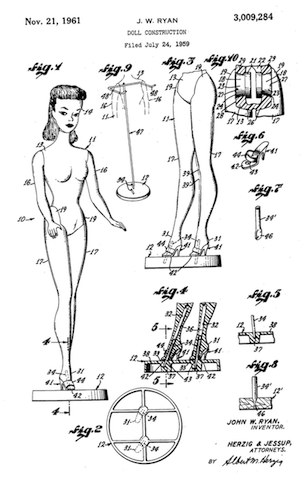Should My Small Business Get A Patent?
Many small businesses have a product or design that is unique to their industry. Business owners may look to obtain a patent to ensure no other competitor can use their product or design, but is it a good idea? Hiring a small business consulting firm, and a lawyer can help you answer this question. We look at the two types of patents small business owners use, as well as the pros and cons of obtaining a patent.
Two Types Of Patents
There are three types of patents that a business or individual can apply for, but only two are commonly used: Utility and Design. The third is a plant patent, but it does not apply to the majority of business owners.
Utility Patent
 A utility patent is the official name given to a patent for an invention. This patent protects how a specific item or invention works. To be considered for a patent, the invention must provide an identifiable benefit and function. For example, the radio in a Toyota® Prius is protected by a patent. This means that no other automaker may reproduce this specific radio without Toyota’s consent. The image to the right shows the original utility patent for the Barbie doll.
A utility patent is the official name given to a patent for an invention. This patent protects how a specific item or invention works. To be considered for a patent, the invention must provide an identifiable benefit and function. For example, the radio in a Toyota® Prius is protected by a patent. This means that no other automaker may reproduce this specific radio without Toyota’s consent. The image to the right shows the original utility patent for the Barbie doll.
Utility patents are the most common patents issued by the United States Patent and Trademark Office (USPTO). There are five categories that fall under a utility patent: process, machine, manufacture, improvement and composition of matter. A utility patent lasts up to 20 years, and after the patent expires, it can be re-applied for. Additionally, fees must be paid periodically in order to maintain the patent. The current USPTO fee schedule is as follows:
3-3.5 years: $2,000 for large entities and $1,000/$500 for small/micro entities
7-7.5 years: $3,760 for large entities and $1,880/$940 for small/micro entities
11-11.5 years: $7,700 for large entities and $3,850/$1925 for small/micro entities
Design Patent
 A design patent does not protect how an item works, rather how it looks. This patent only can only be obtained for three dimensional items, meaning items such as drawings and paintings cannot be patented, only copyrighted. This patent can only be issued for an original design, and cannot be used for a functional item. Furniture, beverage containers and computer icons are examples of objects that can be covered by design patents. The image to the right shows the patent filed for the original Coca-Cola bottle design.
A design patent does not protect how an item works, rather how it looks. This patent only can only be obtained for three dimensional items, meaning items such as drawings and paintings cannot be patented, only copyrighted. This patent can only be issued for an original design, and cannot be used for a functional item. Furniture, beverage containers and computer icons are examples of objects that can be covered by design patents. The image to the right shows the patent filed for the original Coca-Cola bottle design.
Design patents are issued in shorter terms than a utility patent. The design patent lasts up to fourteen years, but unlike utility patents, are non-renewable. Additionally, they will not be issued if your design has been published or sold previously. If you are running a startup business, you could consider obtaining this patent as this can you can give your startup business a leg-up on your competitors.
Pros Of A Patent
- Your invention or design is exclusive to you
- Your invention or design cannot be reproduces, manufactured or sold without your permission
- Allows you to further advance your product and increase it’s value over time
- Can be a valuable asset for small business growth
- Rights can be sold or licensed by royalties (you can charge more as you have complete control over the product)
- Allows you to invest more funds into the product as no one can copy it without infringing
- Provides credibility to your product and your small business
Cons Of A Patent
- The exclusive rights are only exclusive in the are you filed (you must file a separate application in every area you want exclusive rights, i.e different countries)
- You must disclose all details of the product, including how it operates, and this info is public and available to competitors
- It can be expensive, there are many fees associated with applying for and maintaining a patent
- If someone infringes upon your patent you must be will to defend it
- A patent is very particular to your product, so large competitors can replicate your product with enough differences to be legal
- Once the patent expires, anyone can use your product, otherwise you must apply to have the patent reissued (utility patents only)
Is It Worth It?
Patents can be extremely useful for a variety of different reasons, but you may be questioning whether or not it makes sense for your small business. The biggest factors to consider are time and money. If you do not want to go through the process of obtaining a patent for your product, you may consider applying for a copyright instead. If you are unsure whether or not a patent makes sense for your product, please contact us at North Consulting Services for a cost-benefit analysis.


